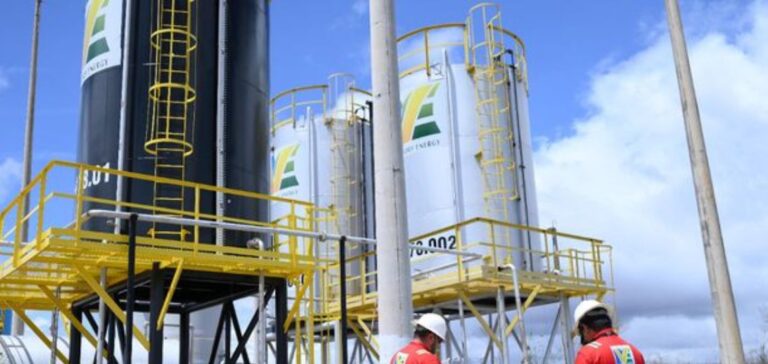Petro-Victory Energy Corp.
and Eneva have signed a Memorandum of Understanding (MOU) to develop non-associated gas resources in the São João field, located in the Barreirinhas Basin, Brazil.
The field is currently 100% owned and operated by Petro-Victory.
Under the terms of the MOU, Eneva will pay for the drilling, logging, completion and testing of a well targeting the Bom Gosto/Arpoador formations, at a depth of around 3 kilometers.
The São João field, which contains 50.1 billion cubic feet (1.4 billion cubic meters) of non-associated gas, was identified by a previous operator and confirmed by a GLJ reserve report in 2023.
This first phase of drilling aims to further evaluate the exploitable resources and determine the commercial viability of the development.
Development options and joint venture structuring
Following the first phase of drilling, Eneva has the option of financing 3D seismic acquisition, processing and interpretation for the entire field.
If this option is exercised, a joint venture (JV) could be formed between the two companies for the future development of the gas resources.
Eneva’s stake in this JV would be 72%, while Petro-Victory would retain 28%, with a clear division of responsibilities and revenues.
The MOU includes clauses guaranteeing that all activities at the São João field, as well as the eventual creation of the JV, will require the approval of the Agência Nacional do Petróleo, Gás Natural e Biocombustíveis (ANP), in accordance with current regulations.
This approach allows us to structure a clear operational framework and spread the risks between the partners.
Challenges for the Brazilian energy sector
The development of new gas resources in the Barreirinhas Basin can play an important role in the diversification of Brazil’s energy supply sources.
Eneva, with its infrastructure close to the São João field, has a strategic advantage in effectively integrating this resource into its existing energy portfolio.
Eneva’s initial investment in drilling and possible seismic studies could also strengthen its position in the domestic gas market.
For Petro-Victory, the agreement offers an opportunity to develop its gas assets with an experienced partner, while limiting initial expenditure.
The cooperation could enable Petro-Victory to capture the added value of gas resources in a market where demand is constantly evolving.
Market outlook and regulations
Brazilian regulations, particularly with regard to the development of energy resources, play a crucial role in guiding such projects.
The approval of the ANP will be decisive for the realization of this partnership and its operational deployment.
Eneva’s financial and technical commitments in this first phase of development signal a strong interest in optimizing local gas resources.
By capitalizing on the new opportunities offered by the São João field, the two companies aim to strengthen their strategic positions in the Brazilian energy sector.
The outcome of this project could influence future approaches to partnerships in the gas sector, and potentially encourage other players to explore similar collaborations.






















